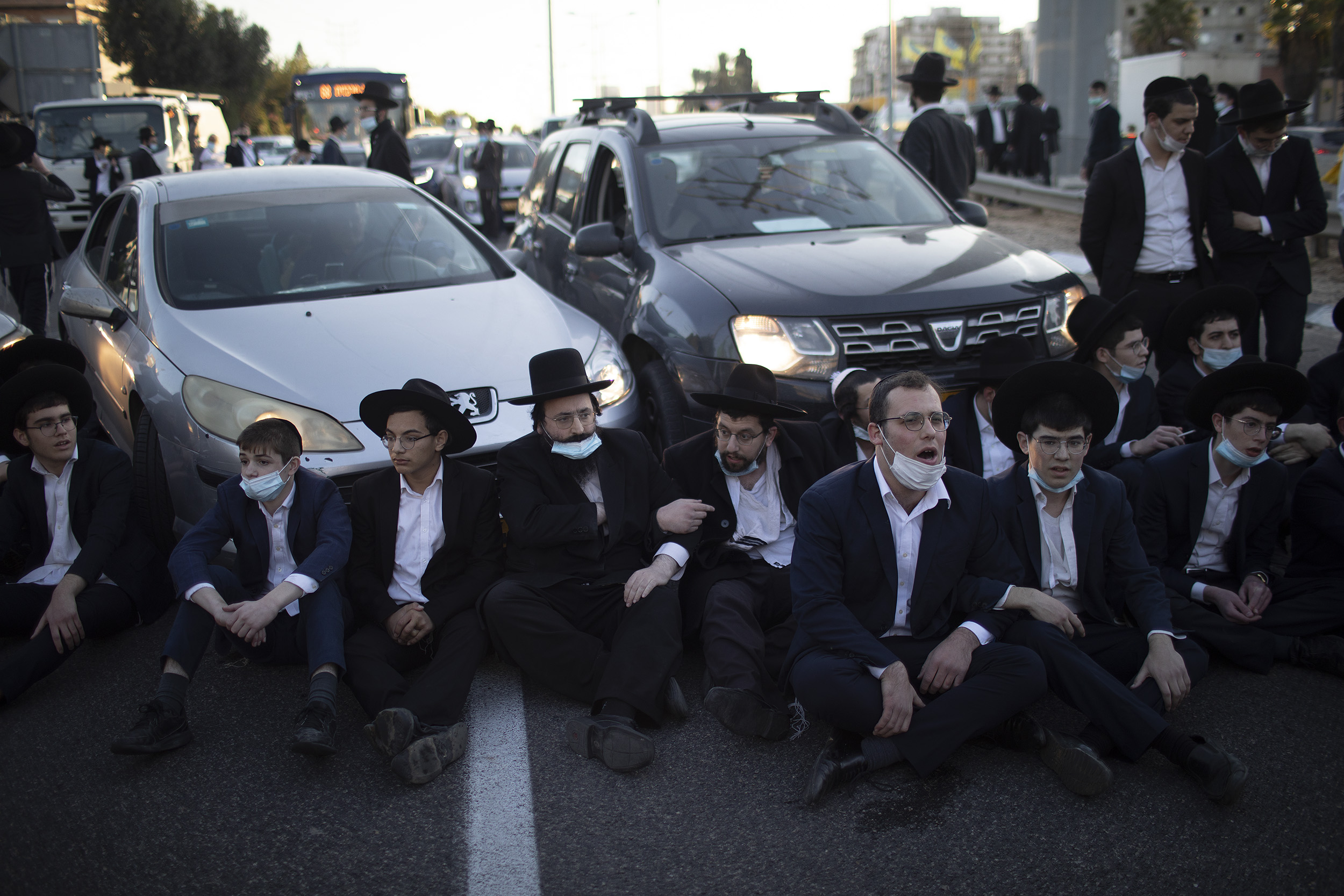This Week’s Guest: Yehoshua Pfeffer
In the last week of January 2021, thousands of Israeli Ḥaredim protested and rioted in Bnai Brak, a predominantly ḥaredi city located east of Tel Aviv. The rioters were angry at the government’s efforts to enforce a lockdown―not Israel’s first―meant to suppress the coronavirus. Several days later, over 10,000 Ḥaredim congregated to mourn the passing of an eminent rabbi, again in violation of the lockdown. For all the frustration that Israel’s Ḥaredim feel, their refusal to comply with the lockdowns has generated an equal measure of frustration and resentment among non-ḥaredi Israelis.
Ḥaredim make up a significant part of Israel, and the coronavirus has brought long-simmering tensions between them and the rest of the Israeli public to a boiling point. This week, Mosaic’s editor Jonathan Silver speaks with the rabbi Yehoshua Pfeffer, a ḥaredi leader and the editor of the ḥaredi publication Tzarich Iyun, to explore how his community might repair their relations with their fellow Israelis. In a recent essay, one discussed here, Pfeffer offers a framework for good citizenship, rooted in traditional religious sources, which he hopes can serve as the foundation for a renewed ḥaredi civic virtue.
Musical selections in this podcast are drawn from the Quintet for Clarinet and Strings, op. 31a, composed by Paul Ben-Haim and performed by the ARC Ensemble.
Excerpt (19:44-22:18):
Yehoshua Pfeffer:
Isolationism isn’t just a facet of ḥaredi society. It’s a defining element of what it means to be a ḥaredi person. A ḥaredi person has an attitude towards modernity which is founded on the concept of isolationism. That’s the strategy that ḥaredi society espoused in order to deal with a threat―and these are serious threats from the ḥaredi perspective―that come in from the Western, modern, liberal tradition.
This goes back to a long tradition. But in that tradition, isolationism was also a certain segregationism. And that is of course very much part and parcel of being in exile. If you’re in exile, then that means that you’re a foreigner in a foreign land. That is almost defining to the exilic condition, and that’s why when the emancipation began and things began to open up, then this whole question of exile versus redemption became blurred. But for ḥaredi society it never became blurred. For the Ḥaredim, it was always clear: we’re very much in exile. Nothing has changed. Any freedom that the foreign governments, whether it’s in Germany or Hungary or in Eastern Europe, any of these freedoms, any of these snippets of emancipation, they make no difference to the defining mindset in which the Jewish person lives, and that is a mindset of exile. A foreigner in a foreign land.
From the ḥaredi perspective, even after the establishment of the state of Israel that mindset didn’t really change. At least on a rhetorical level, it didn’t really change. The exile is ongoing, and it’s an exile among Jews. It’s a different type of exile, it’s a change in circumstances without a doubt, but it’s still an exilic condition. And that exilic condition―whether you’re living in Israel or in Belgium or in the United States―still places a real barrier between the ḥaredi community and the host nation. That’s true for the United States, and it’s true for Belgium, and it’s true for Israel.
More about: Coronavirus, Haredim, Israel & Zionism, Israeli politics, Ultra-Orthodox







